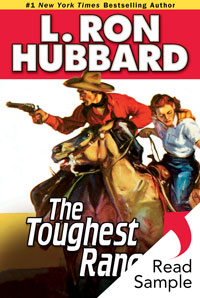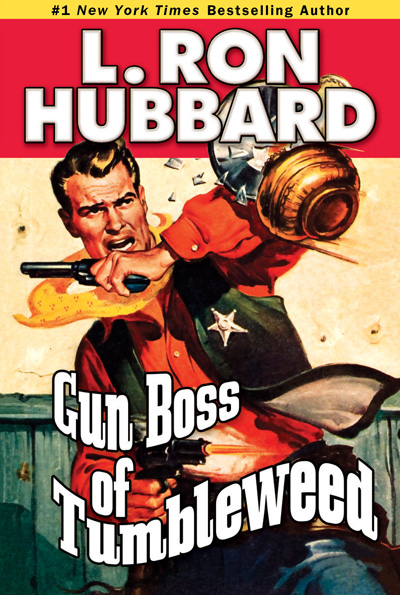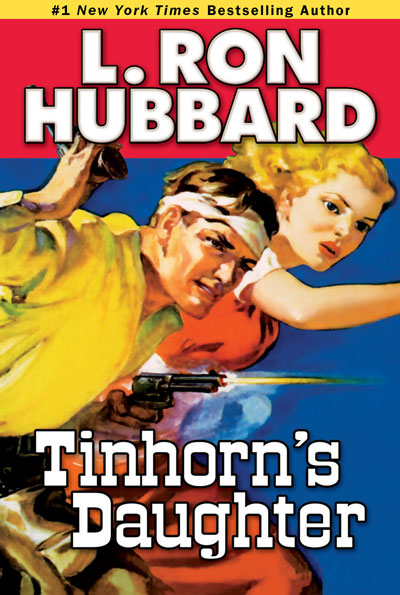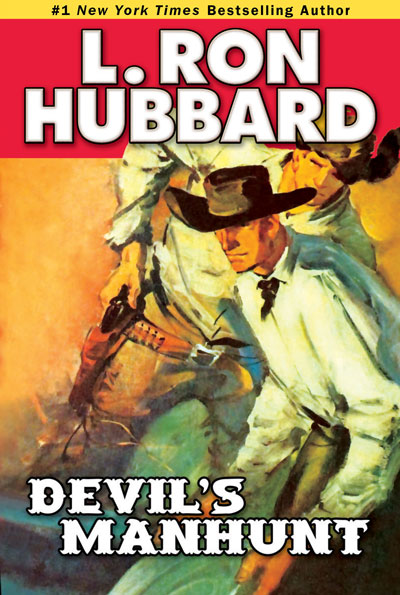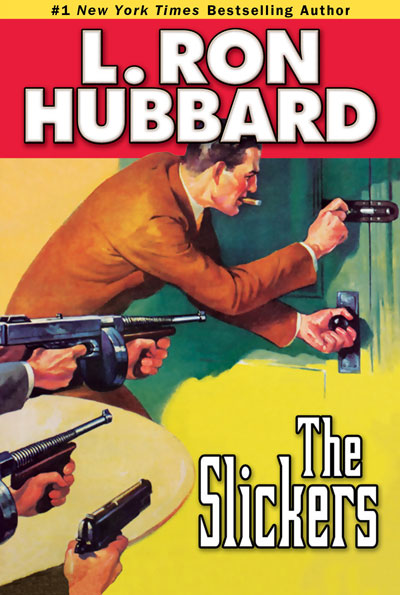The Toughest Ranger Glossary
Stories from the Golden Age reflect the words and expressions used in the 1930s and 1940s, adding unique flavor and authenticity to the tales. While a character’s speech may often reflect regional origins, it also can convey attitudes common in the day. So that readers can better grasp such cultural and historical terms, uncommon words or expressions of the era, the following glossary has been provided.
agates: gemstones with colorful concentric ringlike bands that sometimes look like eyes.
alkali: a powdery white mineral that salts the ground in many low places in the West. It whitens the ground where water has risen to the surface and gone back down.
Arizona Rangers: a group of mounted lawmen organized in 1901 to protect the Arizona Territory from outlaws and rustlers so that the Territory could apply for statehood. They were picked from officers, military men, ranchers and cowboys. With maximum company strength of twenty-six men, they covered the entire territory.
arroyo: (chiefly in southwestern US) a small, steep-sided watercourse or gulch with a nearly flat floor, usually dry except after heavy rains.
’baccy: tobacco; the leaves of the tobacco plant dried and prepared for smoking or chewing.
batwings: long chaps (leather leggings the cowboy wears to protect his legs) with big flaps of leather. They usually fasten with rings and snaps.
black: black sand; a heavy, glossy, partly magnetic mixture of fine sands. Black sand is an indicator of the presence of gold or other precious metals.
blue: a poker chip having a high value.
bonanza: in mining, a rich mine or vein of silver or gold; anything that is a mine of wealth or yields a large income.
buffaloed: deceived; caused to accept what is false, especially by trickery or misrepresentation.
caballeros: (Spanish) gentlemen.
Calexico: a city in Southern California on the US-Mexican border. Founded in 1899, it is a coined name combining the words California and Mexico.
Californio: of the Californio community; Spanish-speaking colonists of Alta California (Upper California) including the land now encompassed by the states of California, Nevada, Utah, northern Arizona, western Colorado and southwestern Wyoming.
Cannonball Stage: Cannonball Express; in 1901, the Cannonball Stage was started and continued to run until about 1913. It used six horses rather than four, and carried the mail as well as passengers. The Cannonball earned its name by “shooting” seventy-two miles in twelve hours, considered terrific speed in those days, with stops every ten miles for fresh horses.
chaparral: small, shrubby trees native to the dry soils of North America, such as scrub oak, mesquite, vines and any sort of shrubbery all tangled together. They can be found in patches or covering a plain.
chuck wagon: a mess wagon of the cow country. It is usually made by fitting, at the back end of an ordinary farm wagon, a large box that contains shelves and has a hinged lid fitted with legs that serves as a table when lowered. The chuck wagon is a cowboy’s home on the range, where he keeps his bedroll and dry clothes, gets his food and has a warm fire.
coat of mail: chain mail; flexible armor made of joined metal links.
cockleburs: any of several weeds having small seedlike fruits enclosed within a prickly bur that clings readily to clothing or animal fur.
Colt: a single-action, six-shot cylinder revolver, most commonly available in .45- or .44-caliber versions. It was first manufactured in 1873 for the Army by the Colt Firearms Company, the armory founded by American inventor Samuel Colt (1814–1862) who revolutionized the firearms industry with the invention of the revolver. The Colt, also known as the Peacemaker, was also made available to civilians. As a reliable, inexpensive and popular handgun among cowboys, it became known as the “cowboy’s gun” and a symbol of the Old West.
concha: a disk, traditionally of hammered silver and resembling a shell or flower, used as a decoration piece on belts, harnesses, etc.
cow town: a town at the end of the trail from which cattle were shipped; later applied to towns in the cattle country that depended upon the cowman and his trade for their existence.
coyote: used for a man who has the sneaking and skulking characteristics of a coyote.
’dobe: short for adobe; a building constructed with sun-dried bricks made from clay.
double eagle: a gold coin of the US with a denomination of twenty dollars, produced from 1850 to 1933. Prior to 1850, eagles with a denomination of ten dollars were the largest denomination of US coin, and since the twenty-dollar gold piece had twice the value of the eagle, it was designated a “double eagle.”
down in the mouth: dejected; depressed; disheartened.
faro: a gambling game played with cards and popular in the American West of the nineteenth century. In faro, the players bet on the order in which the cards will be turned over by the dealer. The cards were kept in a dealing box to keep track of the play.
filler: fill; in a card game, drawing the last card needed to make a five-card hand, such as a straight, flush or full house.
forty-one or .41: Derringer .41-caliber short pistol. Named for the US gunsmith Henry Deringer (1786–1868), who designed it.
Franciscan: a member of a religious order founded by St. Francis in 1209. The Franciscans were dedicated to the virtues of humility and poverty.
Frisco: San Francisco.
G-men: government men; agents of the Federal Bureau of Investigation.
¡Gracias, amigo! ¡Gracias infinitas para todos mandados!: (Spanish) Thanks, friend! Infinite thanks for all you have sent us!
grubstake: supplies or funds furnished a mining prospector on promise of a share in his discoveries.
Henry: the first rifle to use a cartridge with a metallic casing rather than the undependable, self-contained powder, ball and primer of previous rifles. It was named after B. Tyler Henry, who designed the rifle and the cartridge.
holdout: playing cards hidden in a gambling game for the purpose of cheating.
hole card: the card dealt face down in the first round of a deal in stud poker.
hoss: horse.
iron: a handgun, especially a revolver.
Jesuits: Catholic order of clergy called The Society of Jesus. Founded by Ignatius Loyola in 1534, it was committed to education, theological scholarship and missionary work.
jewelry rock: gold-bearing vein quartz.
jingle bob: make sounds from the little pear-shaped pendants hanging loosely from the end of a spur (small spiked wheel attached to the heel of a rider’s boot); their sole function is to make music.
látigo: (Spanish) whip.
light out or lit out: to leave quickly; depart hurriedly.
lit: landed.
livery stable: a stable that accommodates and looks after horses for their owners.
lode: a deposit of ore that fills a fissure in a rock, or a vein of ore deposited between layers of rock.
meers: meerschaum pipe; a smoking pipe made from meerschaum, a white mineral deposit.
mesquite: any of several small spiny trees or shrubs native to the southwestern US and Mexico, and important as plants for bees and forage for cattle.
muy fuerte: (Spanish) very strong.
“’O Sole Mio”: a universally famous song written in 1898. Because the song is so well known, many hotels and restaurants have been named after it. Italian, it translates literally to “I have my sun.”
Overland: Overland Stage; stagecoach line in the mid-nineteenth century that transported mail and passengers.
owl-hoot: outlaw.
Peacemaker: nickname for the single-action (that is, cocked by hand for each shot), six-shot Army model revolver first produced in 1873 by the Colt Firearms Company, the armory founded by Samuel Colt (1814–1862). The handgun of the Old West, it became the instrument of both lawmaker and lawbreaker during the last twenty-five years of the nineteenth century. It soon earned various names, such as “hog leg,” “Equalizer,” and “Judge Colt and his jury of six.”
penny-ante: small-time; two-bit.
poke: a small sack or bag, usually a crude leather pouch, in which a miner carried his gold dust and nuggets.
pulling leather: grabbing onto the saddle while riding a bucking horse. It shows a lack of skill or courage, or both. A cowboy hates to have to grab the saddle horn to stay on, and most will allow themselves to be thrown off before they will pull leather.
punch cows: to take care of cows; to drive cows; to be a cowpuncher, a hired hand who tends cattle.
puncher: a hired hand who tends cattle and performs other duties on horseback.
quartz: a common, hard mineral, often with brilliant crystals. It is generally found in large masses or veins, and mined for its gold content.
quirt: a riding whip with a short handle and a braided leather lash.
rapier: a small sword, especially of the eighteenth century, having a narrow blade and used for thrusting.
riata: a long noosed rope used to catch animals.
riffles: in mining, the strips of metal or wooden slats fixed to the bottom of a rocker box or sluice (a long sloping trough into which water is directed), that run perpendicular to the flow of water. The weight of the gold causes it to sink, where it is captured by these riffles.
rocker box: a rectangular wooden box set on rockers. The rocking motion causes the mixture of dirt and water to flow through the box, with gold-bearing particles trapped by riffles on the bottom.
rootity-tootinest: from rootin’-tootin’; noisiest, most rambunctious.
run-over: of boots, where the heel is so unevenly worn on the outside that the back of the boot starts to lean to one side and does not sit straight above the heel.
rurales: (Spanish) Mexican Rural Guard, a force of mounted police. They wore a distinctive gray uniform braided in silver, a wide sombrero and red or black necktie. Their roles paralleled the Texas Rangers.
saddle tramp: a professional chuck-line (food-line) rider; anyone who is out of a job and riding through the country. Any worthy cowboy may be forced to ride chuck-line at certain seasons, but the professional chuck-line rider is just a plain range bum, despised by all cowboys. He is one who takes advantage of the country’s hospitality and stays as long as he dares wherever there is no work for him to do and the meals are free and regular.
Scheherazade: the female narrator of The Arabian Nights, who during one thousand and one adventurous nights saved her life by entertaining her husband, the king, with stories.
scourge: somebody or something that is perceived as an agent of punishment, destruction or severe criticism.
¡Señor, su pago!: (Spanish) Sir, your payment!
serape: a long, brightly colored woolen blanket worn as a cloak by some men from Mexico, Central America and South America.
sink: a depression in the land surface where water has no outlet and simply stands. The word is usually applied to dry lake beds, where the evaporating water has left alkali and other mineral salts.
sky-hooter: hoot owl; a night owl; a nocturnal bird of prey. Used figuratively.
slouch hat: a wide-brimmed felt hat with a chinstrap.
sombrero: a Mexican style of hat that was common in the Southwest. It had a high-curved wide brim, a long, loose chin strap and the crown was dented at the top. Like cowboy hats generally, it kept off the sun and rain, fended off the branches and served as a handy bucket or cup.
sorrel: a horse with a reddish-brown coat.
St. Vitus: St. Vitus’ dance; a nervous disorder causing involuntary rapid movements likened to dancing.
Stetson: as the most popular broad-brimmed hat in the West, it became the generic name for hat. John B. Stetson was a master hat maker and founder of the company that has been making Stetsons since 1865. Not only can the Stetson stand up to a terrific amount of beating, the cowboy’s hat has more different uses than any other garment he wears. It keeps the sun out of the eyes and off the neck; it serves as an umbrella; it makes a great fan, which sometimes is needed when building a fire or shunting cattle about; the brim serves as a cup to water oneself, or as a bucket to water the horse or put out the fire.
stone hotel: a prison.
stud: stud poker; a game of poker in which the first round of cards is dealt face down, and the others face up.
Texas: a .44- or .36-caliber revolver, made by Clark, Sherrard & Co. During the Civil War, they made a contract with the State of Texas to deliver these revolvers, intended for the Confederacy. More Texas revolvers were sold out the back door, for more money, than those delivered to the state. The name “Clark, Sherrard & Co/Lancaster Texas” is prominently stamped onto the barrel of the gun.
thirteen steps: gallows; traditionally, there are thirteen steps leading up to a gallows.
tinhorn: someone, especially a gambler, who pretends to be important, but actually has little money, influence or skill.
Uncle Sam: the cartoon embodiment of the government of the United States of America beginning in the first part of the nineteenth century. The initials US, of Uncle Sam, were also taken to stand for “United States.”
whippersnapper: an impertinent young person, usually a young man, who lacks proper respect for the older generation; a youngster with an excess of both ambition and impertinence.
white feather: a single white feather is a symbol of cowardice. It comes from cockfighting, and the belief that a gamecock sporting a white feather in its tail is not a purebred and is likely to be a poor fighter.
Winchester: an early family of repeating rifles; a single-barreled rifle containing multiple rounds of ammunition. Manufactured by the Winchester Repeating Arms Company, it was widely used in the US during the latter half of the nineteenth century. The 1873 model is often called “the gun that won the West” for its immense popularity at that time, as well as its use in fictional Westerns.
wire gold: gold ore that looks like its description: fine, short pieces of wire, or a tangled wirelike mass. It is found mostly in pockets or veins.


